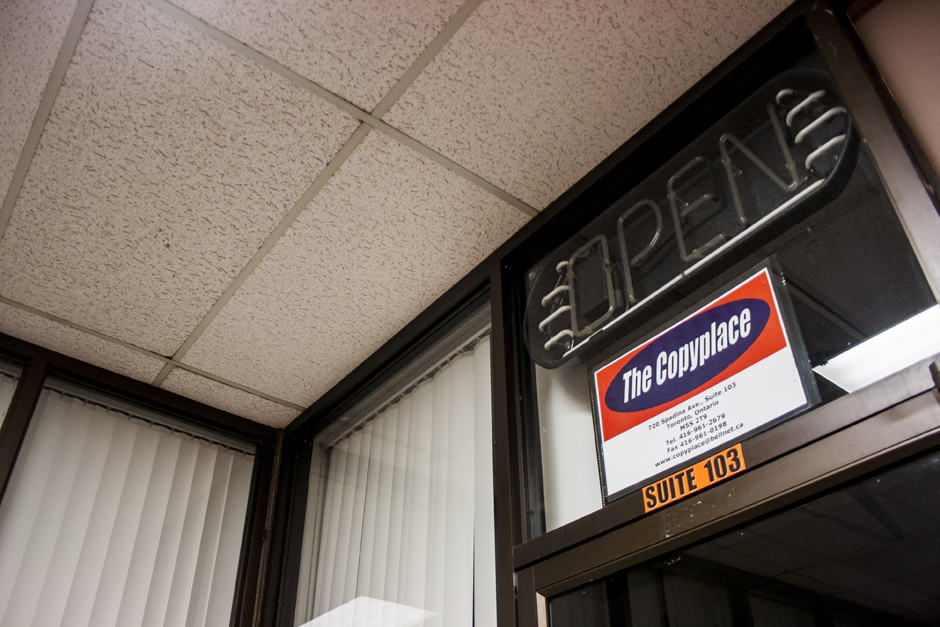For the first time in two years, the University of Toronto is managing its copyright dealings independently of Access Copyright, a non-profit licensing organization that represents copyright holders. Although many of the university’s copyright rules remain unchanged, one major difference affecting the cost of course packs is the amount of material from copyrighted sources included in them. The university currently has free access to content that its libraries have purchased or are licensed to use, open access and public domain content, and content used under U of T’s Fair Dealing Guidelines (FDG).
The FDG permit up to 10 per cent of a copyright-protected work to be considered a “short excerpt” available for university distribution. Under the Access Copyright license, this amount was 20 per cent. The FDG stipulate that faculty members and teaching staff may reproduce or communicate short excerpts from copyright-protected work as part of a course handout, on Blackboard, or as part of a course pack.
The university terminated its controversial agreement with Access Copyright in December 2013, when the two failed to reach a deal with which the university was satisfied. The agreement with Access Copyright ended when, according to a U of T press release, the university was unable to renew its licence for a price that reflected the value of services received. The university pushed for a deal that reflected the most recent changes to copyright regulation, including the 2012 amendments to the Copyright Act.
In 2012, when the university reached an agreement with Access Copyright, students and faculty criticized the agreement as a challenge to academic freedom, saying the contract could permit surveillance of students’ and faculty’s email accounts.
This year, in light of the changes in copyright handling, some students reported spending as much as $100 on course packs.
Rebecca Hellam, a second-year political science and history student, said she noticed a significant increase in the cost of her course packs this year. “My POL208 [Introduction to International Relations] professor told the class we would have to buy [the] course pack for nearly double the price it cost last year due to the termination of the Access Copyright license. The fact that he was sincerely apologetic confirmed my belief that the price hike was a bit much to expect students to afford,” Hellam said.
Under the old licence, students paid $27.50 annually for Access Copyright services. Now, student fees are no longer used to fund access to copyrighted materials. Instead, the university administration supports the Office of Scholarly Communications and Copyright, which offers copyright-related services to students, staff, and faculty.
Robert Glushko, scholarly communications and copyright librarian at U of T, explained that if a course pack contains more than 10 per cent of a copyrighted work, each page beyond the 10 per cent threshold costs an additional 10 cents. Under the old Access Copyright license, there were no per-page fees for copying up to 20 per cent of material in the Access Copyright repertoire.
“We’ve done extensive outreach to faculty to help them make use of free and licensed resources that should cost you nothing,” Glushko said, adding: “Some students are paying for materials that are available in the library catalogue for free because we have a licence for them. The idea here is most certainly to keep costs to students under control, and working with faculty to move towards licensed resources and away from printed course packs where appropriate is one part of those efforts.”
Glushko maintained a positive view of the developments, both from legal and student access-based perspectives. “I believe that it’s certainly more in line with the reality of Canadian copyright law; the Supreme Court has been quite clear that educational fair dealing was meant to be seen in a large and liberal manner,” he said.


